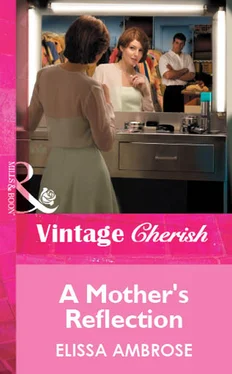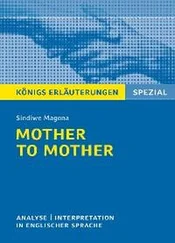He ignored his daughter and flashed his boyish smile at Rachel. “I’m saying, Ms. Hartwell, that you’ve got the job.”
“Rachel,” she said smoothly, trying to conceal her elation. “Apple pie, remember?”
No matter how much he fiddled with the computer monitor, it wouldn’t light up. Dammit, he should be able to figure out this contraption. The problem with technology was that as soon as you got something all figured out, it was already obsolete.
Adam was the first to admit he wasn’t too fond of change.
The screen on his desk suddenly came to life. He sat back on his chair. What had just happened? Good question, Wessler. He wasn’t referring to the computer; he was thinking about the interview. A stunning young woman waltzes into my office as though she’s on some kind of mission, and my brain goes AWOL. How could I have gone against my gut reaction and hired her on the spot?
It had nothing to do with the way she looked. No one could accuse him of that kind of bias. Sure, she was curvy in all the right places, with legs that didn’t quit, but he’d hardly noticed. And he’d hardly noticed her face as he’d gone through the motions of conducting the interview. Her skin was smooth and sun kissed, her smile bright and contagious. Her emerald eyes shone with a passion that, these days, was foreign to him—although he hadn’t paid much attention to her eyes, either.
No, it was because he needed someone to fill in for the teacher he had originally hired for the position. After deciding she would rather act than teach, Susan Dobbs had suddenly quit and left for New York.
Good luck, he thought. New York was full of would-be actors.
But that wasn’t the only reason he had hired Rachel. That wasn’t why his brain had turned to oatmeal. It had something to do with his daughter. Only a blind person couldn’t have seen the way Megan and Rachel had connected. No sighted person could have missed the way Rachel had glowed like a child on Christmas morning when he’d suggested that Megan show her around the center, or how Megan had eagerly complied.
He knew she was more than qualified for the job. This was children’s amateur theater, not Broadway, and she was a teacher with stage experience. But there was something about her, something that didn’t add up. Something he couldn’t define.
Before Megan had barged in, he had decided to turn Rachel down, basing his decision purely on instinct. But the skillful way she’d handled the situation with Megan had convinced him to change his mind. When Erika had cast another girl for the part of Annie, Megan had taken the decision as a personal affront—Megan took everything Erika did as a personal affront—yet in less than a minute Rachel had persuaded Megan to take the part of Grace. It had been nothing short of amazing. And this was why he had gone against his initial reaction and hired her. Someone with as much understanding of kids as she’d demonstrated was what this place needed. Maybe she was just what Megan needed.
He was always on the lookout for anything that might brighten his daughter’s life. She was so temperamental, more so these past two months, ever since his mother had taken a turn for the worse. Recently he’d brought home a puppy from the pound, even though Erika had been against it. “You can’t expect someone so troubled to be responsible for another living thing,” she’d argued. Erika had been wrong. Cinnamon had quickly become Megan’s best friend and confidante, and where the puppy’s health and safety were concerned, Megan was like a doting parent. But she was still so moody.
She was high-strung because she was gifted, Erika insisted. Someone with that much talent should be in a special school. The Manhattan School for the Arts had a few openings, but time was running out. Adam had to make a decision soon, to secure a place.
Then there was his mother. He had to make a decision about her, as well.
He stared out the window. Middlewood was a pretty town, with neatly laid-out streets and yards. The downtown streets were lined with antique stores and trendy cafés, and something was always going on—a festival, an exhibit, an organized walk through the hilly grounds. The town was growing fast, and change was something he had trouble with.
The phone rang, taking him by surprise. It’s about time that thing worked, he thought, picking up the receiver. But after what he heard on the other end, he found himself wishing that the connection hadn’t been fixed. Not that he was ever inaccessible. These days, with one crisis after another at home, he made sure he was never without his cell phone. After a brief conversation he hung up and placed his head in his hands.
He thought back to the past. Except for his years at Berkeley he’d lived in Middlewood all his life. After graduation he married his childhood sweetheart, Cathy, and began teaching at the local high school. Five years later they adopted a baby, and for ten more years they lived a normal, happy life. Then, on the day of their fifteenth anniversary, Cathy had been driving back from the hairdresser’s and his world had collapsed.
No, he wasn’t very good at handling change. But things were changing, and he felt powerless to stop them.
He was about to leave his office, when he remembered his umbrella. The sun shone in through the open window, and the day outside was bright and clear. He was sure the forecast was wrong, but the last thing he wanted was to be caught by surprise as he walked across the parking lot. Like change, surprise was something he didn’t handle well.
“Through those doors is the passageway that leads to the arena,” Megan said. “Isn’t that neat? You don’t even have to leave the building.”
“Do you skate?” Rachel asked hopefully.
“No, I don’t have much time for sports, with acting classes and rehearsals and helping out at home. Dad plays hockey, though. He says it helps him unwind. But I guess that kind of skating is different.”
They passed through the main corridor and entered the theater. “This place is wonderful,” Rachel said. “I never figured on it being so large!”
“It seats five hundred. Middlewood might be a small town, but we have a reputation for supporting the arts.” Megan motioned to the orchestra pit. “We even have our own symphony. They’ll be doing the music for Annie.”
Rachel was touched by Megan’s obvious pride in her community. “When do they plan on finishing in here?” she asked as they made their way to the stage. She craned her neck and looked up. A big burly man was standing on the catwalk, hammering.
“Sometime next week. At least that’s what Farley says.” Balancing herself with one arm, Megan swung onto a crate and sat down. “I suppose I’ll have to introduce you to Erika.” She rolled the name off her tongue as if it had a sour taste.
“You don’t like her, do you?”
“Let me put it this way. If we were putting on The Wizard of Oz, she’d be perfect in the role of the witch. I’m just hoping that someone will drop a house on her. Maybe then I won’t have to move away.”
In her careful scheming Rachel hadn’t considered that Adam would ever leave Middlewood. She felt a cold knot form in her chest. “Your father just took on a new job. Why does he want to move?”
“He’s not moving, just me,” Megan answered. “To some kind of finishing school. Did you ever hear of anything so stupid? A finishing school in this century! Erika calls it an art academy, but she can’t fool me. The Manhattan School for the Arts is just a place where East Coast parents can dump their kids.”
“I take it you don’t want to go.” Rachel’s mind was whirling. She supposed she could always apply for a position at the school, but why would they hire her? The Manhattan School for the Arts was world renowned. It wasn’t a small private school in Hartford, and it certainly wasn’t Middlewood.
Читать дальше










